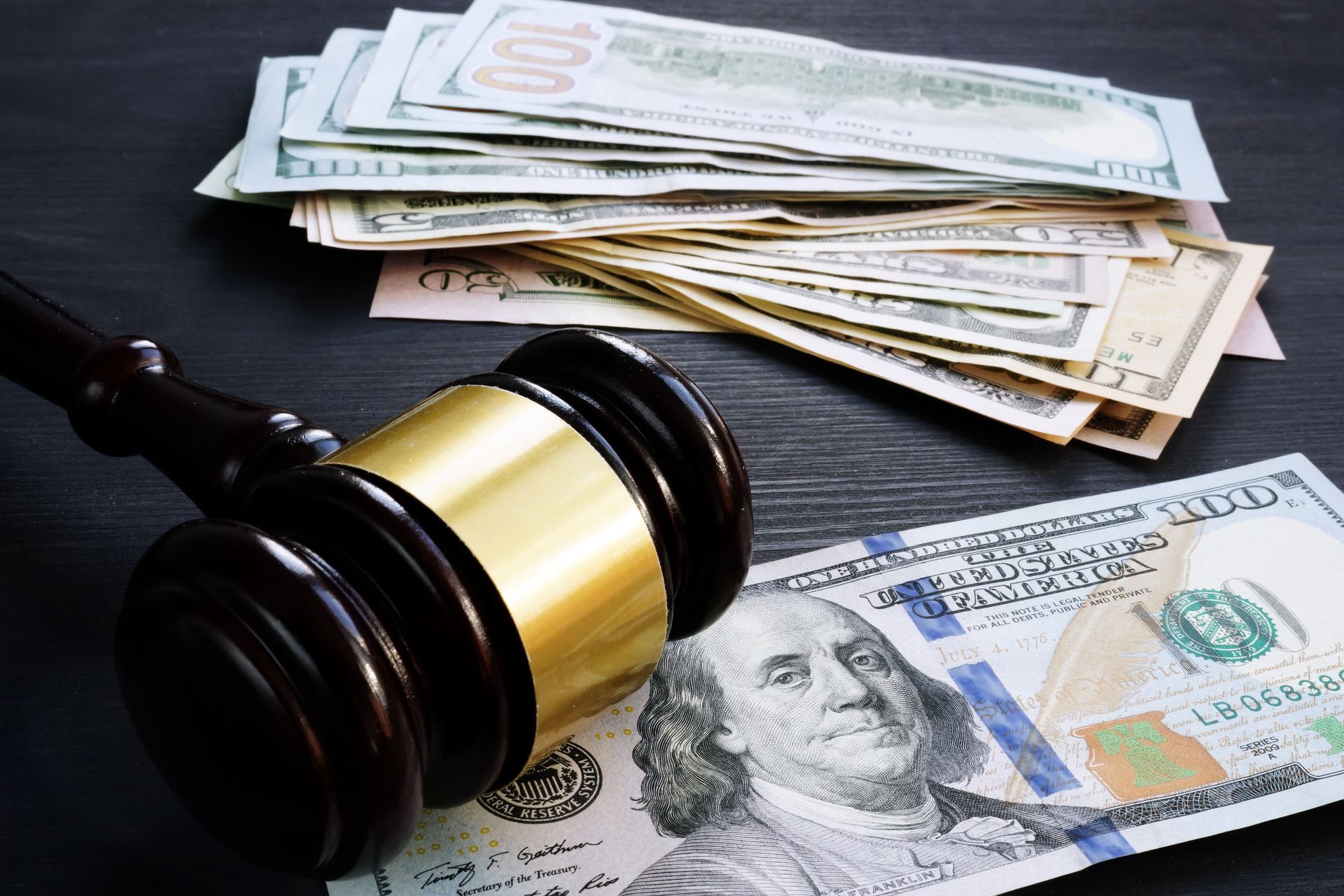How Does the Bail Bond Process Work?
Getting arrested can be one of the most stressful experiences for anyone, whether it's you or a loved one. But here’s the good news: bail bonds are here to help. If you’re unfamiliar with the process, it can seem overwhelming, but once you understand the basics, it becomes much easier to navigate. So, if you’re wondering, “How does the bail bond process work?”—this blog has you covered. Whether you’re in Van Nuys, CA, or beyond, understanding how bail bonds function can make the experience smoother.
What is a Bail Bond and How Does It Work?
At its core, bail is a financial guarantee that a defendant will return to court for their scheduled appearances. But often, bail amounts are too high for most people to afford out of pocket, which is where bail bonds come in.
A bail bond is essentially a loan provided by a bail bondsman (or bail agent) to cover the bail amount. In exchange, you pay the bondsman a percentage of the total bail—usually 10% in California. This fee is non-refundable, even if the charges are dropped or the defendant is found not guilty.
Here's how the process works in a nutshell:
- Arrest: Someone is arrested and taken into custody.
- Bail is set: A judge sets a bail amount based on the severity of the crime, past criminal history, and other factors.
- Contact a bail bondsman: If the bail is too high to pay outright, you contact a bail bond company like PG13 Bail Bonds.
- Bail bond agreement: You or a co-signer signs a contract agreeing to the terms of the bond, including the 10% fee and potential collateral.
- Release: Once the bail bond is posted, the defendant is released from jail with the promise to appear in court.
- Court appearances: As long as the defendant shows up for all court dates, the process runs smoothly.
It sounds simple enough, but let's dive a little deeper into each step of the process.
How is Bail Determined?
Understanding how bail is determined is essential for knowing what to expect financially. Bail isn’t a one-size-fits-all amount. In Van Nuys, CA, and across California, the judge uses a bail schedule as a guideline but also considers several factors when setting bail.
Here are some factors that influence bail amounts:
- The severity of the crime: The more serious the crime, the higher the bail. For example, bail for a DUI might be a few thousand dollars, while bail for a violent crime could easily reach six figures.
- Flight risk: If the judge believes the defendant is likely to flee and avoid trial, they may set a higher bail—or deny it altogether.
- Criminal history: Defendants with a history of not showing up to court, or those with a criminal record, may face higher bail amounts.
- Public safety: If the defendant is seen as a danger to the community, the judge may set a higher bail.
In California, judges have the discretion to adjust bail amounts based on these and other factors. If bail is set too high, your bail bondsman can help you negotiate a more affordable option.
Step-by-Step Breakdown of the Bail Bond Process
Navigating the bail bond process can feel like trying to find your way out of a maze. Here’s a clear, step-by-step guide on what to expect:
- Arrest and Booking
When someone is arrested, they’re taken to a local jail where they’re fingerprinted, photographed, and processed. This is known as booking. After booking, the defendant will have a bail hearing, where the judge will decide if bail is necessary and, if so, how much. - Bail Amount is Set
As mentioned earlier, the judge considers several factors before setting bail. Once bail is set, the defendant has the option to either pay the full amount or contact a bail bond agent to post bail on their behalf. - Contacting a Bail Bondsman
This is where PG13 Bail Bonds comes in. Either the defendant or a friend/family member contacts a bail bond company. A bail bond agent will gather basic information, such as the defendant’s name, booking number, and the amount of bail. - Signing the Agreement
You or a co-signer (a person who guarantees the bond) will need to sign a contract agreeing to pay the 10% fee and any additional fees. Collateral might also be required depending on the bond size, which could include property, jewelry, or other assets. - Posting Bail
Once the agreement is signed, the bail bondsman posts bail at the jail, and the defendant is released with the agreement that they’ll show up to all court dates. - Court Dates
The defendant is required to attend all scheduled court appearances. If they do, the bond is discharged at the end of the trial. However, if the defendant skips court, the bond is forfeited, and the bail bondsman can collect the collateral or take other legal steps.
Do I Need a Co-Signer for a Bail Bond?
In many cases, yes. A co-signer is someone who takes responsibility if the defendant skips court or doesn’t meet their bail bond conditions. The co-signer is often a close friend or family member who trusts the defendant to make all their court appearances.
A co-signer has important responsibilities, including:
- Paying any additional costs if the defendant doesn’t appear in court.
- Putting up collateral, which could be personal property like a car or home.
- Ensuring that the defendant follows through with their legal obligations.
Not all bail bonds require a co-signer, but having one can be a significant advantage in securing a bond, especially if the bail amount is high or the defendant is seen as a potential flight risk.
What Happens if the Defendant Skips Court?
Unfortunately, skipping bail is a real concern for both the bail bondsman and the co-signer. If the defendant fails to appear in court, several things can happen:
- Forfeiture of Bail: The court will immediately issue a warrant for the defendant’s arrest, and the bail bond is forfeited. That means the bail bondsman is on the hook for the full bail amount.
- Chasing Collateral: If you or the co-signer put up collateral, like a house or car, the bail bondsman can take legal action to claim that property to cover the bond.
- Bounty Hunters: Yes, bounty hunters still exist! If the defendant is a no-show, the bail bondsman may hire a bounty hunter to track them down and return them to custody.
Skipping bail isn’t just a bad idea—it comes with serious financial and legal consequences for everyone involved.
What if I Can’t Afford the 10% Fee?
If you can’t afford the 10% fee for a bail bond, don’t panic! Many bail bond companies, including PG13 Bail Bonds, offer payment plans to help families manage the cost.
Here are a few options that might be available to you:
- Payment Plans: Some bail bond companies allow you to spread the 10% fee over time. Be sure to ask your bail bondsman about flexible payment options.
- Collateral: In some cases, you can use property, vehicles, or other assets as collateral if cash isn’t available.
- Discounts: In California, some bail bondsmen offer discounts for veterans, union members, or clients represented by a public defender. Check with your bail bondsman to see if you qualify for any discounts.
Always talk openly with your bail bondsman about your financial situation. They’re there to help you navigate the process and can work with you to find a solution.
Ready to Post Bail in Van Nuys, CA? Contact PG13 Bail Bonds Today!
If you or a loved one needs bail bond assistance in Van Nuys, CA, PG13 Bail Bonds is ready to help. Our experienced team of bail bondsmen will guide you through the entire process, making sure you understand every step. With flexible payment options and professional service, we’re here to make a stressful situation easier to manage.
Call us today at
(818) 373-4444 to discuss your options and get your loved one out of jail fast. Remember, the sooner you call, the sooner we can help you navigate the bail bond process.
FAQs
How long does it take to get out of jail after posting bail?
Once bail is posted, release times vary depending on the jail, but it generally takes anywhere from 30 minutes to several hours.
Can I get my bail bond money back?
No, the 10% fee paid to the bail bondsman is non-refundable, even if the case is dismissed.
What happens if I miss a court date?
If you miss a court date, the bond is forfeited, and a warrant will be issued for your arrest. You should contact your bail bondsman immediately if this happens.
Can bail bonds be financed?
Yes, many bail bond companies offer financing options or payment plans to make the process more affordable.
What types of crimes are eligible for bail?
Most crimes are eligible for bail, but serious offenses, such as murder, may have higher bail amounts or no bail at all.




